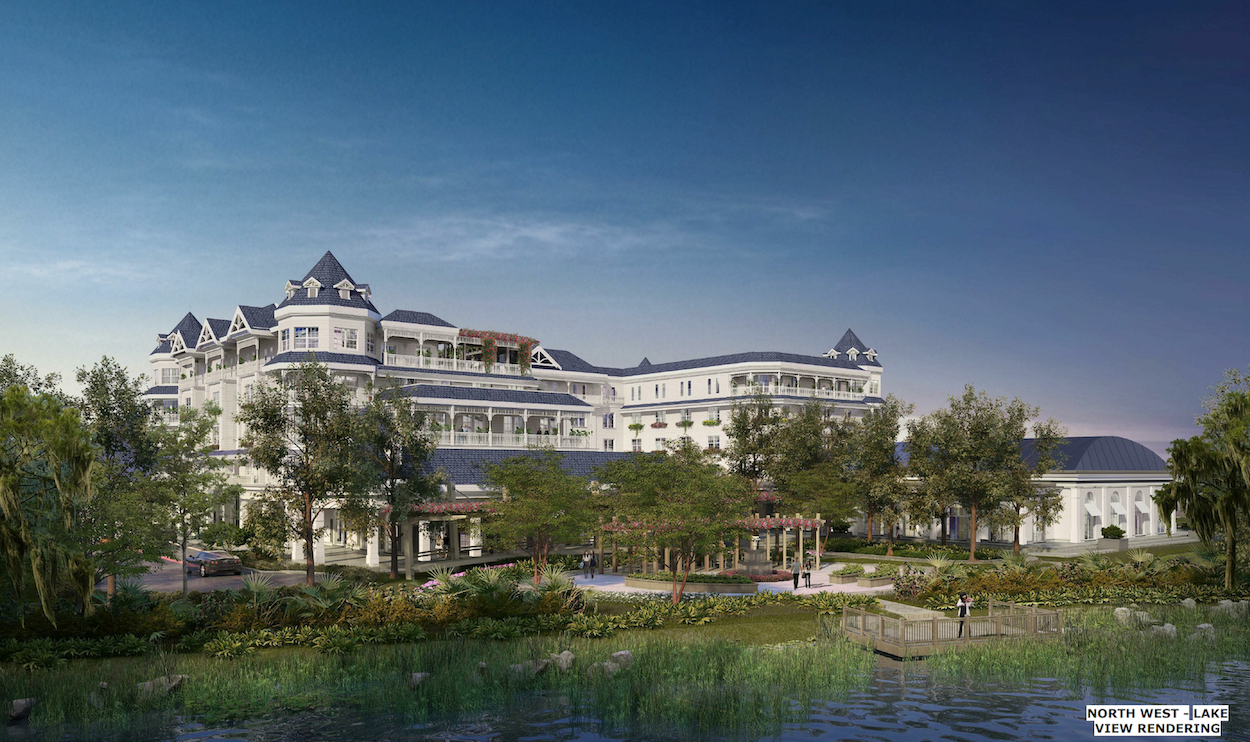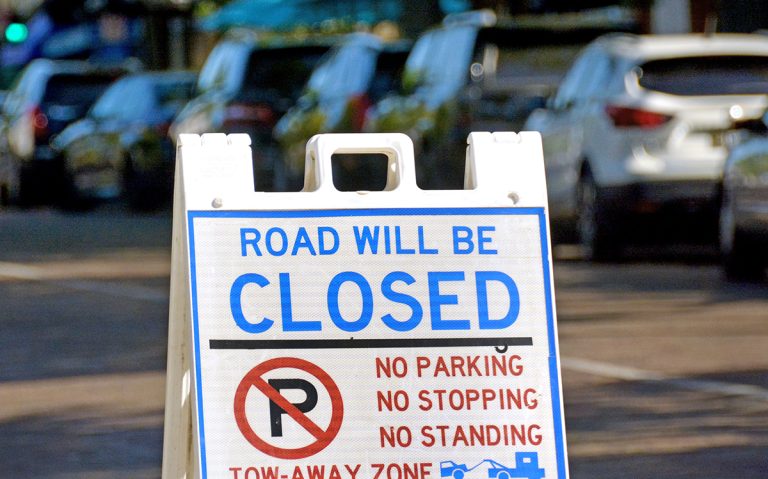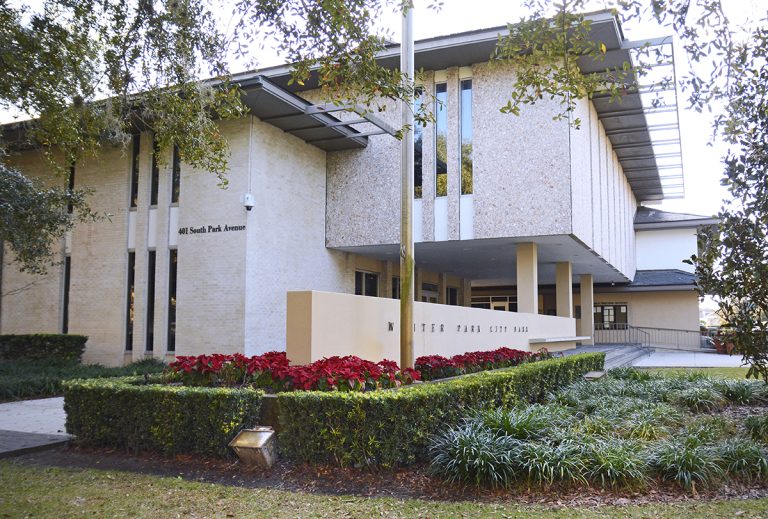By the look of the audience in last week’s City of Winter Park commission meeting, one would have thought the Henderson Hotel project would pass with flying colors. Citizen after citizen, adorned in specially printed masks and stickers in support of the hotel, showed up early to back the controversial project. Although supporters far outnumbered those opposed in the room, the hotel came to a screeching halt just minutes before midnight following nearly four hours of public comment.
Public comment was preceded by a motion to deny the project’s approval by Commissioner Todd Weaver. The motion was seconded by Commissioner Marty Sullivan but was not immediately advanced to a vote due to some confusion around order and procedure.
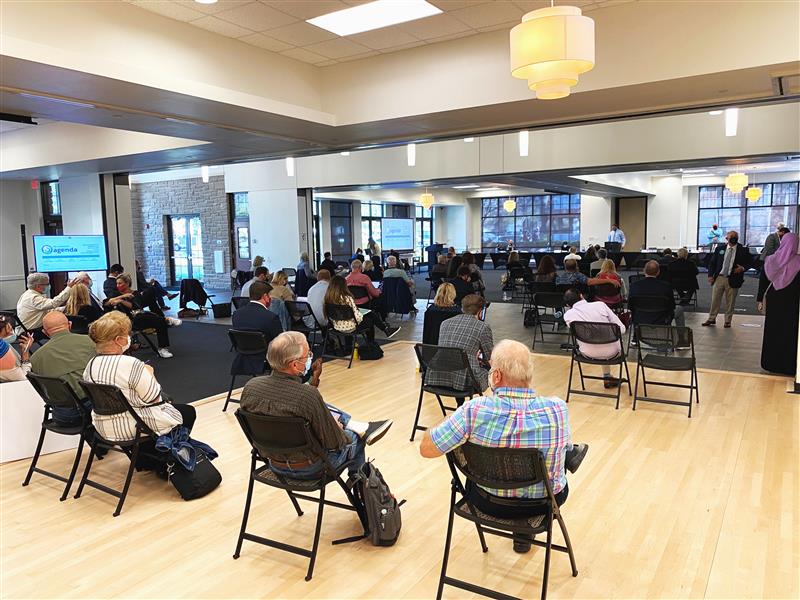
The atmosphere in the room was tense. Both sides spoke to their points passionately and there was an occasional, fervid outburst from the crowd. Public comments featured voices on either side including neighbors of the property, Winter Park residents, and representatives of Hillstone Restaurant who opposed the project citing sinkhole concerns. Speakers on both sides made strong arguments which showed extensive preparation and concern for the City’s wellbeing.
Neighbors who opposed the project—citing reasons from light and noise pollution to traffic increases and scale concerns—lined up to voice opposition. In multiple cases, paid attorneys took to the podium to defend the interests of the would-be project’s neighbors. One suggested that the hotel would be a better fit for International Drive than its proposed location.
Project supporters spoke about the potential creation of jobs, desire to have another high-end community hotel, and the opportunity to generate more tax revenue. The Henderson Hotel was projected by its developer, Atrium Management Company, to become the fourth largest tax contributor in the City—a desirable “get” for any municipality wrestling with budget concerns. However, the supporting arguments would not be enough to sway the meeting’s conclusion in favor of the developer.
Toward the end of the meeting, the developer team, led by a partner of Atrium Management Company, Adam Wonus, announced ongoing discussions with a neighbor’s attorney that would have reduced the size of the project substantially. Proposed changes would have reduced the height of the building, eliminated hotel rooms, and axed the ballroom along with a number of other accommodations to make the project more palatable to adjacent residents.
But those eleventh-hour negotiations were not enough to keep the project on track. After public comment came to a close, commissioners continued discussion in an attempt to bring the matter to a decision.
As the night grew later and attendees grew weary, Commissioner Weaver delivered a slide presentation to the audience which included his background with lake maintenance, the differences between laws and ordinances, and some detailed background on zoning codes. The 20-minute presentation also included a run-down of pictures of the properties including exhibits of docks, vegetation, and best guesses regarding potential maintenance tasks like pressure-washing.
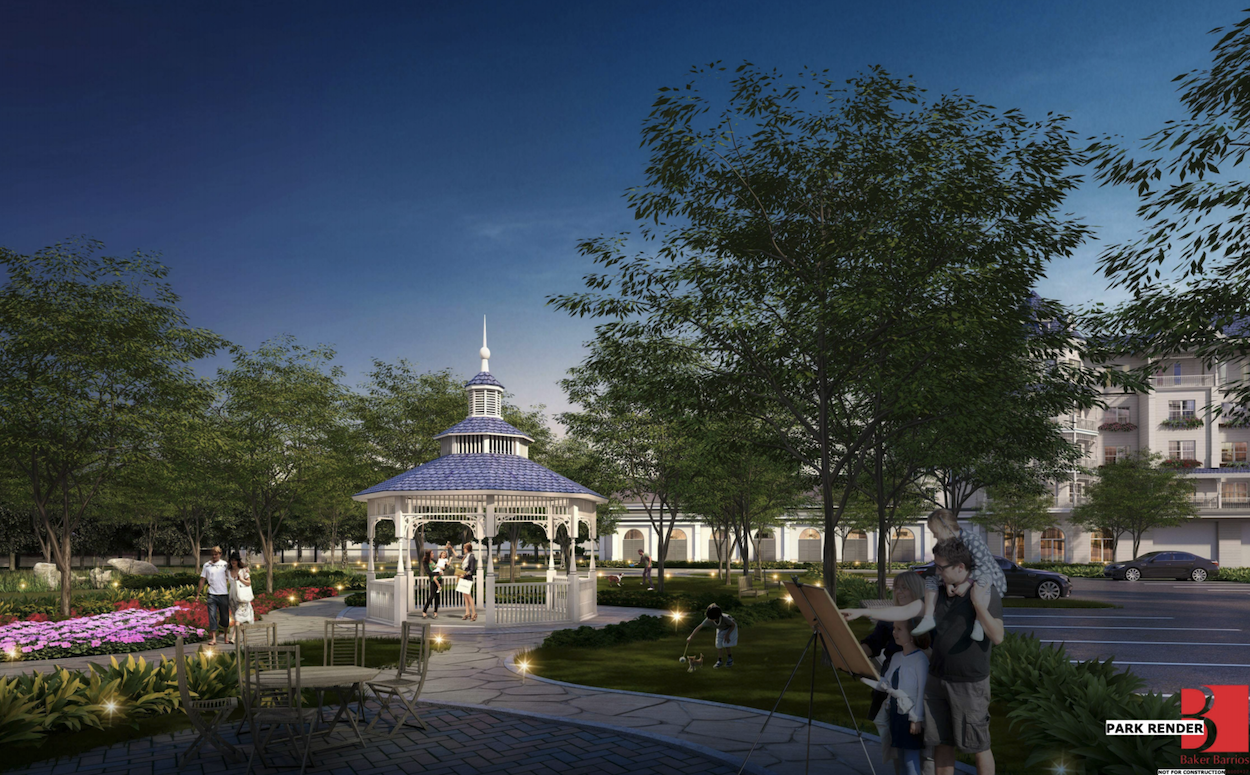
Commissioner DeCiccio shared both compliments and concerns about the project. “I think you’re a great guy, Adam [Wonus]. I would love to see a hotel there, but the ballroom and a 225-seat restaurant is too much there.” DeCiccio expressed support but wanted to table the motion, a move that would have further delayed the project at significant cost to the developer: “I think we can work with this. I would be willing to table this for two weeks.”
Attorney Rebecca Wilson, legal representative for the project’s developer, warned that the project would likely not continue if faced with further delays. “If we get tabled, guys, this thing dies,” Wilson said. “Spending money revising plans when millions have already been spent will cost one hundred thousand dollars. In order to do that we’d like to know that we have the support of the commission.” Her comments represent every developer’s dilemma: how much to spend on planning knowing that a project might not materialize.
Mayor Leary expressed a similar sentiment: “tabling this… out of respect… prolongs the process for everybody that’s involved.”
Commissioner Carolyn Cooper voiced support for tabling the project for a future meeting and suggested a workshop to discuss details: “If you guys walk based on us wanting to sit down and have a conversation, that’s your choice and a tragedy.”
Wilson was quick to note that the developer had “been begging for meetings and having meetings for two years now,” seemingly expressing a willingness to compromise—just with limits.
As the clock neared midnight, Mayor Leary made a motion incorporating the proposed changes but did not have a second to advance it. Commissioner Sullivan subsequently made multiple motions to deny, seconded by Commissioner Weaver, in defense of residential neighborhoods, claiming that the project “violates the trust homeowners place in us.” Weaver concurred on the issue of re-zoning: “The neighbors put me here to avoid that one thing.”
To a mixed chorus of applause and boos, the developer withdrew all applications before a vote could be taken, signaling an end to the project. As the meeting concluded (along with the project), what appears evident is that Winter Park has citizens on either side of the real estate development issue and many interpretations of what “smart” or “responsible” development looks like. The divide between the two distinctive sides can be expansive, emotional, and personal.
